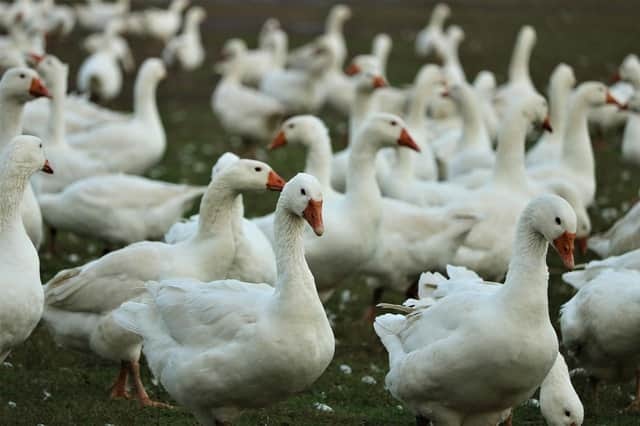Birds culled after avian flu found in Angus


Neither the exact location of the case, nor the number of birds involved, has been confirmed, but public health advice is that the risk to human health from the avian influenza (H5N1) virus is very low.
A UK-wide bird flu prevention zone has come into force meaning bird keepers need to follow strict biosecurity measures to help protect their flocks.
Advertisement
Hide AdAdvertisement
Hide AdThe move follows bird flu outbreaks in other parts of the UK.
Temporary control zones have also been set up around the infected premises to limit the risk of the disease.
In a statement, the Scottish Government said: “A flock of kept birds in the Angus constituency have tested positive for avian influenza (H5N1).
“In order to limit the further spread of disease, appropriate restrictions have been imposed on the premises.
Advertisement
Hide AdAdvertisement
Hide Ad“The remaining birds at the premises will be humanely culled and three kilometre and 10 kilometre Temporary Control Zones have been set up around the infected premises to limit the risk of the disease.
“Within these zones, a range of different controls are now in place. These include restrictions on the movement of poultry, carcasses, eggs, used poultry litter and manure.”
Rural Affairs Secretary Mairi Gougeon said that, with the recent disease confirmations in wild and captive birds in the UK, it is not unexpected for avian influenza to be found in birds in this area.
She continued: “Temporary Control Zones have been put in place around the infected premises and we ask that the public remain vigilant and report any findings of dead wild birds.”
Advertisement
Hide AdAdvertisement
Hide AdScotland’s Chief Veterinary Officer Sheila Voas added: “We have already made clear that all bird keepers – whether major businesses or small keepers with just a few birds – must ensure that their biosecurity is up to scratch to protect their birds from disease.
“If a single dead wild waterfowl, a single dead bird of prey, or five or more dead wild birds of any other species are found at the same place at the same time, this should be reported to Defra’s national helpline. Do not touch or pick up any dead or visibly sick birds.”